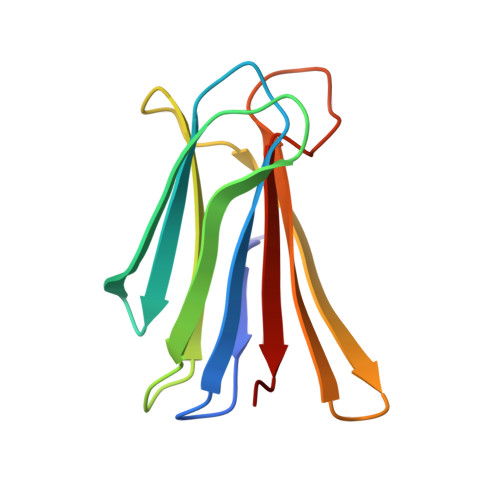Glycomimetic, Orally Bioavailable LecB Inhibitors Block Biofilm Formation of Pseudomonas aeruginosa.
Sommer, R., Wagner, S., Rox, K., Varrot, A., Hauck, D., Wamhoff, E.C., Schreiber, J., Ryckmans, T., Brunner, T., Rademacher, C., Hartmann, R.W., Bronstrup, M., Imberty, A., Titz, A.(2018) J Am Chem Soc 140: 2537-2545
- PubMed: 29272578
- DOI: https://doi.org/10.1021/jacs.7b11133
- Primary Citation of Related Structures:
5MAY, 5MB1 - PubMed Abstract:
The opportunistic Gram-negative bacterium Pseudomonas aeruginosa is a leading pathogen for infections of immuno-compromised patients and those suffering from cystic fibrosis. Its ability to switch from planktonic life to aggregates, forming the so-called biofilms, is a front-line mechanism of antimicrobial resistance. The bacterial carbohydrate-binding protein LecB is an integral component and necessary for biofilm formation. Here, we report a new class of drug-like low molecular weight inhibitors of the lectin LecB with nanomolar affinities and excellent receptor binding kinetics and thermodynamics. This class of glycomimetic inhibitors efficiently blocked biofilm formation of P. aeruginosa in vitro while the natural monovalent carbohydrate ligands failed. Furthermore, excellent selectivity and pharmacokinetic properties were achieved. Notably, two compounds showed good oral bioavailability, and high compound concentrations in plasma and urine were achieved in vivo.
- Chemical Biology of Carbohydrates and ‡Drug Design and Development, Helmholtz Institute for Pharmaceutical Research Saarland (HIPS), Helmholtz Centre for Infection Research (HZI) , D-66123 Saarbrücken, Germany.
Organizational Affiliation:



















